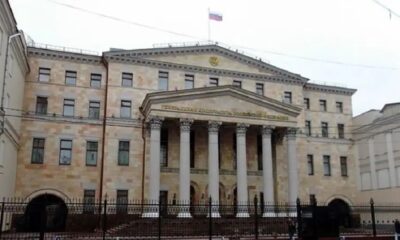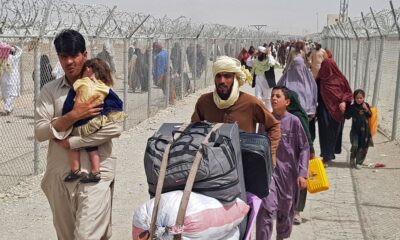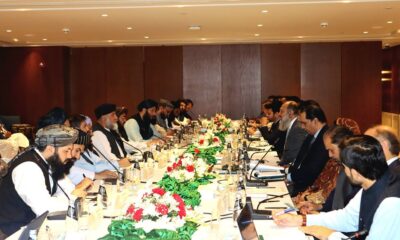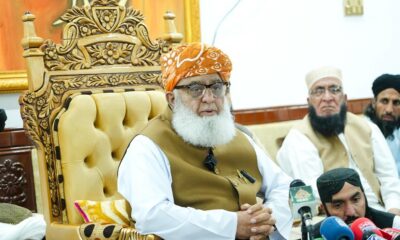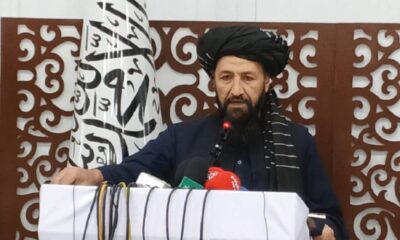Latest News
Political parties mull US peace plan that ‘offers’ Taliban 50%
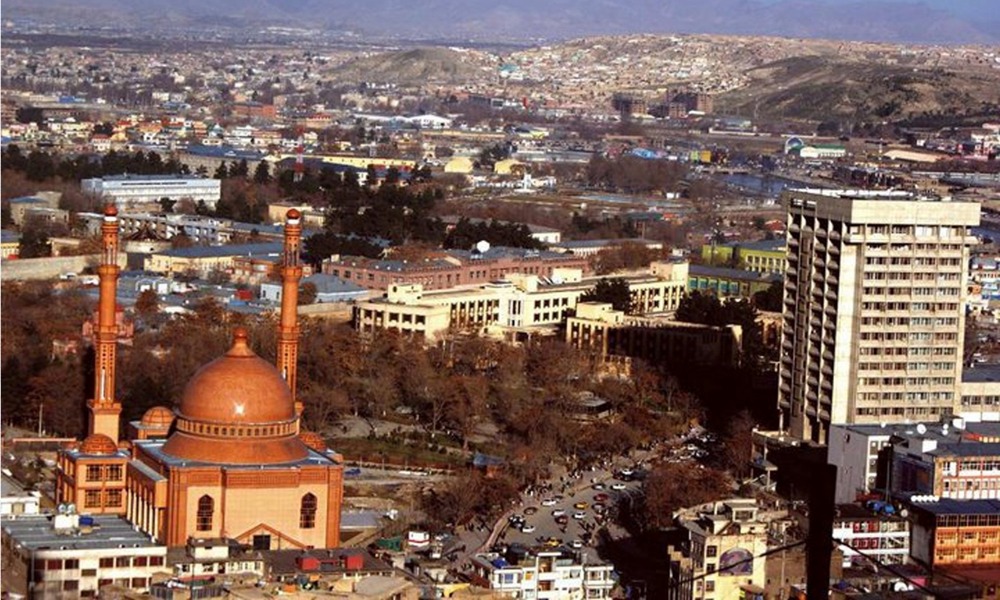
Members of a number of different political parties said Tuesday that under the new US plan for a transitional government, the Taliban has been offered a 50 percent stake in the system with the balance shared between politicians and government.
The sources said they have been in consultations regarding the proposal delivered by US peace envoy Zalmay Khalilzad last week.
Meanwhile, sources from the Jamiat-e-Islami party said they proposed the power-sharing plan to the US – but said it should be divided up equally between government, political parties, and the Taliban.
Other sources have meanwhile said the Taliban and government have been offered an equal share in provincial seats, ministry representation, seats in the National Assembly, and in the judiciary institutions.
“We are consulting on the plan but we do not accept it. Power should be divided between three players: government, the political parties, and the Taliban,” said Abdul Sattar Murad, a senior member of Jamiat-e-Islami.
The Taliban, have not however commented on this but said on Sunday night they were reviewing the proposal.
First Vice President Amrullah Saleh meanwhile said on Monday that Afghanistan will never accept demands that could jeopardize the people’s right to vote.
He said the letter sent out by US Secretary of State Antony Blinken to key stakeholders, was a proposal for a new political structure in Afghanistan, and that it was “shameful” and he would “resist it”.
“Let me be clear I will not sign it,” Saleh said.
But some politicians are on board with the idea and said a “participatory system” under the umbrella of the Republic was acceptable. Others have said they are still discussing the proposal.
“This US plan is not final. It has the ability to change and be adjusted. Politicians will sit down and come to a general conclusion about this plan. The Moscow-Ankara meeting has been used for this plan,” said Hafiz-Ur-Rahman Naqi, the deputy head of Hizb-e-Islami in reference to a planned peace meeting in Moscow next week and a proposed summit in Turkey at a later stage.
According to sources, the US peace plan for Afghanistan also states that the Republic and the Taliban will have an equal say in selecting members of a transitional government within the framework of peace.
Latest News
Russia’s Supreme Court suspends ban on Islamic Emirate

Russia’s Supreme Court on Thursday agreed to suspend the Islamic Emirate’s designation as a banned organization in Russia, following a formal request from the Prosecutor General’s Office.
Although the IEA remains officially designated as a terrorist organization in Russia, the court’s ruling effectively freezes that classification, opening the door to broader political engagement.
The IEA, however, continues to be subject to United Nations sanctions.
According to Russian media reports, a representative of the IEA attended the closed-door court session, during which the court reviewed the prosecutor’s petition seeking to suspend the ban.
“The suspension follows an administrative lawsuit filed by the Prosecutor General’s Office of the Russian Federation,” Supreme Court Judge Oleg Nefyodov said while reading the ruling, according to local media.
The session was held behind closed doors, and Russian authorities have not yet publicly commented on the potential political implications of the move.
Latest News
WATCH: Authorities scramble to accommodate refugee influx at Afghanistan border
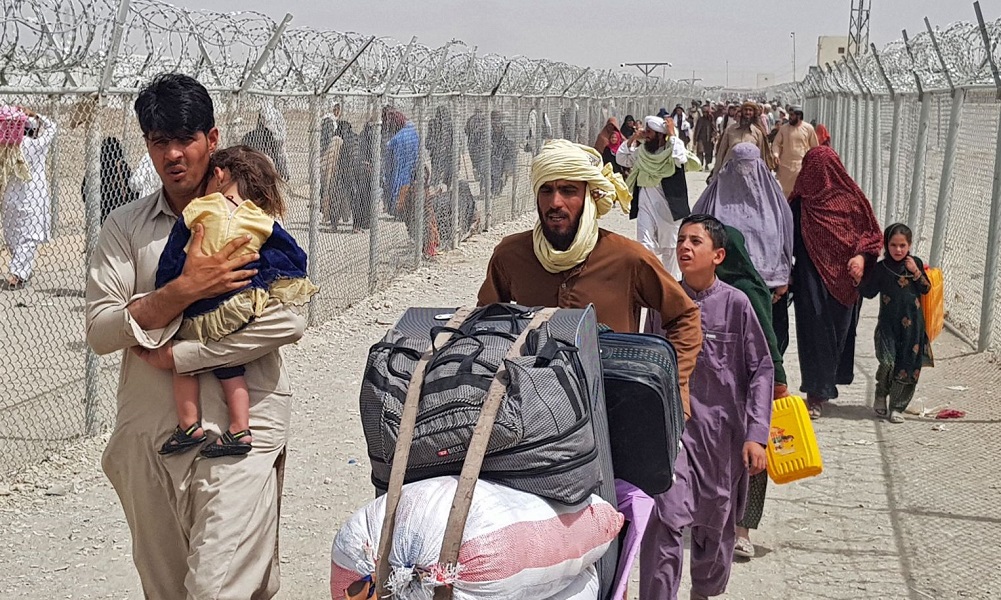
As thousands of refugees cross back into Afghanistan amid Pakistan’s campaign to forcibly expel over 1 million Afghans, local officials scramble to accommodate the influx which also means areas of landmines need to be cleared around the Torkham border area in order to establish more tented camps.
The mines and other unexploded ordnance are remnants of Afghanistan’s 20 year war that ended with the collapse of the former US-backed government in August 2021.
Government officials who visited Torkham this week say they are ready to cooperate with returning refugees.
Nooruddin Torabi, the head of the National Disaster Preparedness Agency, visited Torkham on Tuesday. He stressed the need to clear the area of mines and unexploded ordnance.
Torabi also said that another transit camp would be established to temporarily accommodate the returnees.
Refugees however have slammed the Pakistan government for the way they have handled this. Many say they are now homeless after having left everything behind, including houses, businesses and possessions. In addition to this, a large percentage of them have nowhere to go after having lived in Pakistan for decades.
Afghans have been fleeing to Pakistan for over 40 years – since the invasion of the old Soviet Union in December 1978.
Islamic Relief reported this week that tens of thousands of Afghans are facing dire conditions in makeshift camps after crossing the border from Pakistan.
According to the organization, an assessment team that visited Torkham found that many refugees are arriving in Afghanistan without any shelter, food, cash or water. These families were forced to leave possessions – including animals and household items.
People arrive in droves, covered in dust, crammed onto trucks, and face a barren border with no basic services in sight. The first thing that greets them is a harsh, wind storm swirling with dust.
This influx comes amid an economic crisis in the country and as global cuts to humanitarian funding have forced many essential services in Afghanistan to close, including health facilities and food distributions.
Many of the new arrivals have lived in Pakistan for decades after seeking refuge there, fleeing conflicts and instability in their homeland. They include children who were born in Pakistan and have never been to Afghanistan. Many others no longer have close family members in
Afghanistan or have not visited for many years. They are not truly ‘returning home’ as they hardly know Afghanistan and have no homes or livelihoods to kickstart their lives here.
Some of the arrivals do not even speak an Afghan language and many returnees lack proper identification documents.
The interim Afghan government has pledged to take care of refugees returning to Afghanistan and humanitarian organizations are ramping up efforts to help these refugees.
Pakistan last month set an early April deadline for some 800,000 Afghans carrying Afghan Citizen Cards (ACC) issued by the Pakistani authorities to leave the country, in the second phase of efforts to remove Afghans. More than 1.3 million Afghans who hold Proof of Registration cards from the UN refugee agency, UNHCR, have also been told to move outside the capital Islamabad and the neighbouring city of Rawalpindi
Latest News
Afghan, Pakistani commerce minister meet in Islamabad to discuss trade
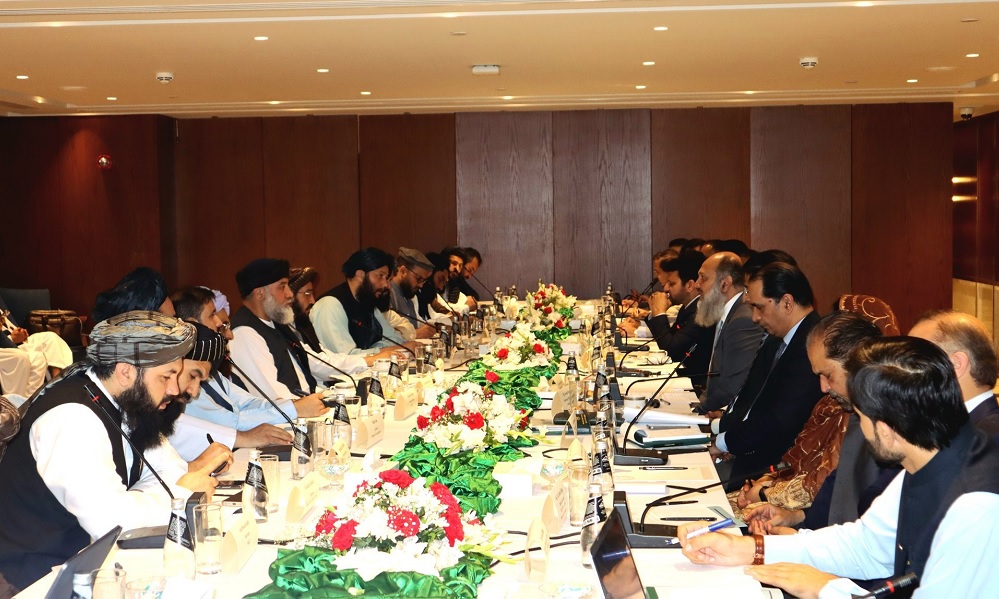
Afghanistan’s Acting Minister of Industry and Commerce Nooruddin Azizi met with his Pakistani counterpart Jam Kamal Khan, discussing bilateral trade, transit and other issues of mutual interest, it was announced on Thursday.
Separate meetings between the technical teams of both sides are also expected to be held for further discussions to find proper solutions for existing challenges and boost the bilateral trade, Afghanistan’s embassy in Islamabad said in a statement.
In a separate statement, Afghanistan’s Ministry of Industry and Commerce said that the meeting discussed extension of APTA trade agreement, transit facilities, prevention of smuggling of goods, coal exports, round-the-clock operations at Torkham crossing, possibility of bilateral trade through Ghulam Khan port, movement of trucks between the two countries, bank guarantee and creating a comprehensive mechanism for the management of ports.
-
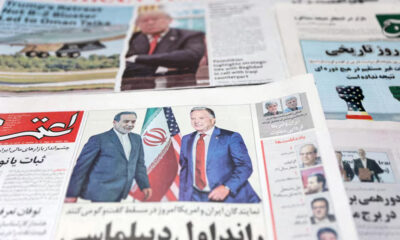
 Regional5 days ago
Regional5 days agoIran, US hold ‘positive’ talks in Oman, agree to resume next week
-

 World4 days ago
World4 days agoTrump says Ukraine talks may be going OK, but there is a time ‘to put up or shut up’
-
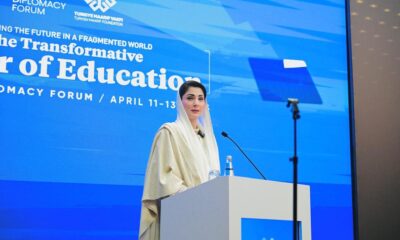
 Latest News4 days ago
Latest News4 days agoPakistan’s Punjab CM calls for ‘human response’ to Afghan girls’ education ban
-

 Regional3 days ago
Regional3 days agoSaudi Arabia plans to pay off Syria’s World Bank debts – Reuters
-

 Latest News4 days ago
Latest News4 days ago6.1-magnitude earthquake shakes northern Afghanistan
-
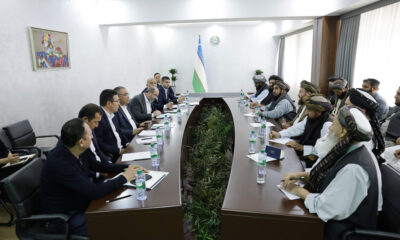
 Latest News3 days ago
Latest News3 days agoAfghanistan and Uzbekistan to expand cooperation in agriculture sector
-
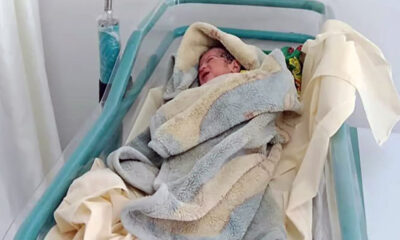
 Latest News2 days ago
Latest News2 days ago17 babies born at Torkham refugee centers in past two weeks
-

 World2 days ago
World2 days agoTrump says Iran must give up dream of nuclear weapon or face harsh response


